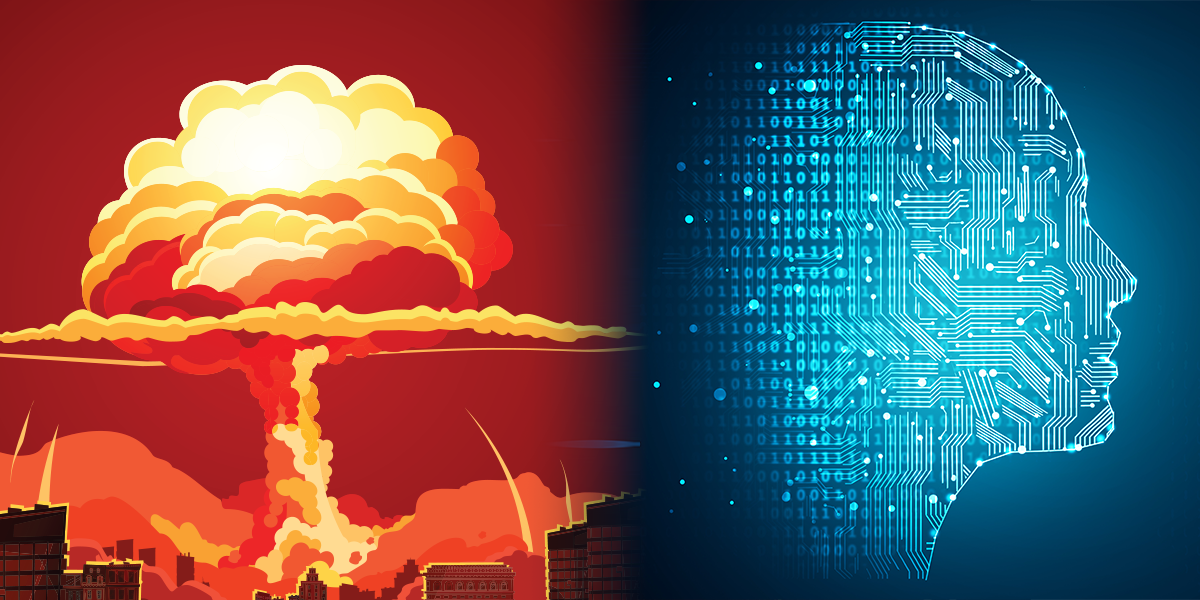Oppenheimer and AI

Shutterstock.com
At the 96th Academy Awards, big-screen auteur Christopher Nolan finally won an Oscar for Best Director for his feature film Oppenheimer, a majestic three-hour biopic of Dr. J. Robert Oppenheimer.
The film is now being screened in Japan, and I was able to watch it during a flight over the North Pole in February, prior to its release in Japan. Due to the war in Ukraine, flights over Russia are banned, and so European flights from Japan pass over the North Pole. On this flight, due to the trickery of the Earth's rotation and the speed and path of the plane, I experienced a strange transition of light and dark, when for a moment it looked as if dawn had broken, but then, it was shortly followed by the silence of the night.
Watching the three-hour long Oppenheimer at such a sentimental time of day, I was drawn into the film. Dawn and sunset, and the time of day when light and darkness intersected, were the very epitomes of this film.
The fact that huge amounts of energy are released by nuclear fission was theoretically predicted by Einstein's theory of relativity. Subsequently, experimental physics demonstrated that the fission of uranium releases enormous amounts of energy as predicted by Einstein. The Manhattan Project to develop an atomic bomb was advanced by Dr. Oppenheimer and other excellent scientists, resulting in the completion of the atomic bomb within a short time. The contribution of mathematicians such as von Neumann, who was the founder of the principles of the modern computer, was also essential to this process.
The rate at which discoveries in basic science lead to its implementation in society is not always rapid. A rare example is that the huge energy release from nuclear fission predicted by theoretical physics led to the completion of the atomic bomb and its use in actual warfare posthaste. Scientists in the United States and the rest of the world at the time were working hard to realize atomic detonation using nuclear fission.
Nuclear weapons are the results of the endeavors of the world's best scientists of the time. The film depicts the anguish and sorrow of Dr. Oppenheimer, when he realized the devastating power of nuclear weapons, their extraordinary lethality and the enormous risk they posed to the world, and how he was eventually expelled from public office after expressing strong concerns about the development of nuclear weapons.
The current war in Ukraine suggests that now is the era of the curse of the weapons of mass destruction developed by Dr. Oppenheimer and his colleagues. We are right in the middle of that era.
Artificial intelligence (AI) is now dramatically changing the world; AI will undoubtedly be one of the most dramatic game-changers of science and technology ever achieved by humans. Needless to say, it will fundamentally shake conceptions of human intelligence. Even conceptions of human reason and sensibility, which have been thought to exclusively belong to us, will also be shaken.
No one knows now what the consequences of generative AI technology will be for the future of the world and for human well-being. There are major concerns, such as a fear that AI will become a threat to the world and beyond, comparable to or even exceeding that posed by nuclear weapons. Thus, there are moves afoot in developed countries around the world to place restrictions on the development and use of AI.
On the other hand, there are great expectations regarding the potential of AI, such as a hope that peaceful uses will solve various social problems that are threatening the world, including climate change. With such hopes, huge amounts of money are being invested in its development, and in the business world, AI seems to be creating a kind of feverish excitement.
In either case, the fact is that we scientists are deeply involved, exactly the same as with nuclear development. It should never be left to politics or meritorious business experts alone.
It is not only fundamental science and technology like nuclear development and AI. At universities including Hokkaido University, no matter how trivial the research being carried out day and night, there are parallels to Dr. Oppenheimer's anguish and to the hope and despair of AI. Reason and sensitivity are necessary to connect intelligence and society, and a healthy imagination is an essential skill for those who carry out scientific research.
